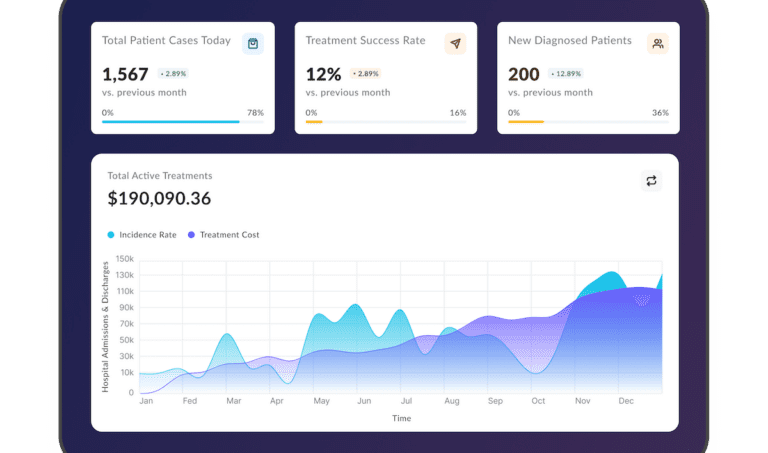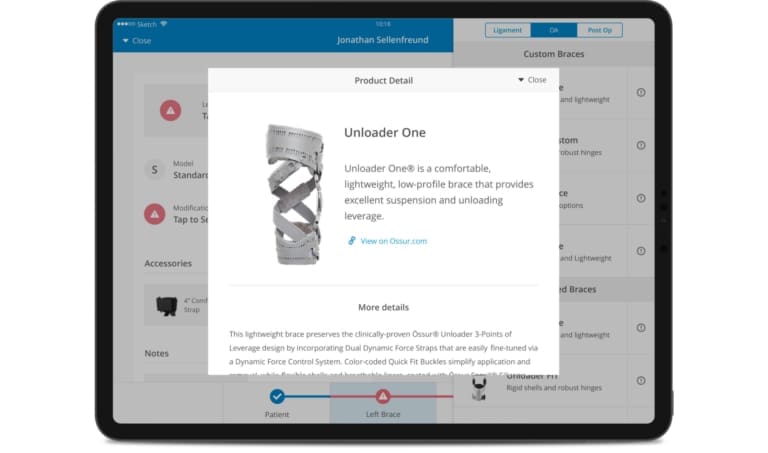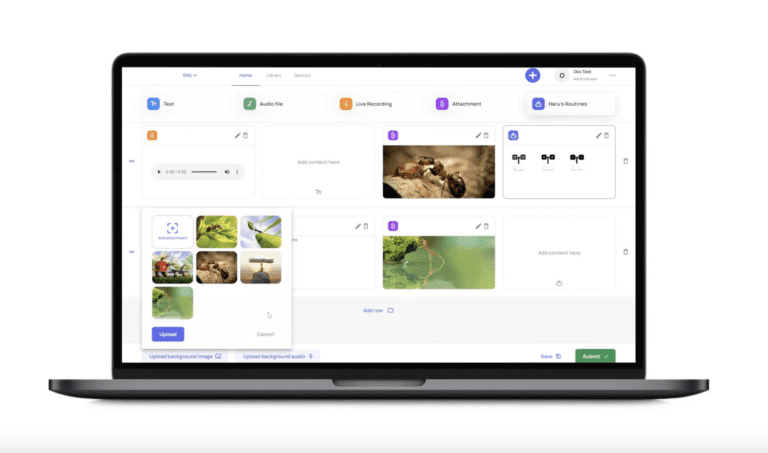Flight Booking App Development: How to Take Your Business to the First Class
While the travel and tourism industry is making a comeback after the coronavirus pandemic, the way people plan, book, and manage their trips has changed forever. 71% of people use travel software to coordinate and plan their journeys and believe that if one of those applications were to fail, their vacation would be disrupted. The broader booking trends reflect the same reality: 66% of all bookings in 2023 were made online, and mobile apps accounted for 35% of online flight and hotel sales. No wonder the demand for flight booking app development is at an all-time high.
If you’re eager to capitalize on this opportunity and build your own travel reservation app, there are a few things you need to know: the core features of a good app, the cost of booking app development, and how actually to build it. Years of experience in mobile app development let our travel app development company give you expert tips and knowledge to take your concept from takeoff to a smooth launch.

We provide companies with senior tech talent and product development expertise to build world-class software. Let's talk about how we can help you.
Contact usTable of Contents
What Is a Flight Booking App?
A flight booking app is a tool that streamlines the reservation process for airlines. The convenience of mobile applications lets travelers around the globe book flights, track flight status, download tickets, and manage their travel details (check-in, flight changes, etc.), all with just a few taps on their mobile devices. Some flight reservation apps also offer price comparison functionality, which is very popular among travelers nowadays. Clearly, mobile solutions made trips by air more accessible, transparent, and easier – key characteristics modern travelers appreciate.

Types of Business Models for Flight Tickets Booking App
The ultimate goal of any application is to grow profits and sustain its operations in the long run. So, it’s critical to choose the optimal business model for your flight reservation app to generate revenue and create a win-win situation for your customers and your business. Let’s have a look at some of them:
Dedicated Model. Travel businesses build their own app to manage flight bookings directly with their customers and offer users a seamless experience with their brand (quick searches, easy cancellations, and time-efficient features), all within a single platform.
Aggregator Model. This model combines a marketplace of airlines and travel service providers that covers a broad spectrum of price ranges, categories, and specialties. Users can compare prices across various carriers and book flights directly through the app.
White Labeling or B2B Model. Tour operators, travel agencies, and airlines can use a white label app that lets them brand the platform under their own name and offer flight booking services to their customers. Revenue flows through licensing fees or revenue-sharing agreements between the app developer and its partners.

Flight Booking App Development Process
The travel bug has bitten, and you’ve decided to opt for custom flight booking app development. But where do you begin, and what should you pay attention to in your endeavors to build an app that wins users’ hearts? In essence, the mobile app development process for travel reservation systems is pretty much the same as for any other service-oriented app. Yet, flight booking apps require certain functionalities and integrations to connect with airlines and handle real-time price comparisons. Below, we outlined the steps we follow to create a mobile flight reservation app and go into the details on how to do it right.
Understanding the Market
A full picture of the market before the actual app development process shows you what travelers need and what other apps already offer, so you don’t waste time on the creation of a product that nobody wants. So, here is what you should do:
- Research the Competition
Overview flight booking apps available on the market to figure out the features they offer and the user experience they deliver. Assess their advantages to understand what works well for travelers and then analyze their weaknesses. Competitor research will help you determine what functionalities users expect to see in flight reservation apps and areas where existing apps underperform or overlook user needs. Based on this info, you can create a unique selling proposition for your app to differentiate on the market and capture your customer base.

- Perform Target Audience Analysis
To make booking app development a success, you need to pinpoint your ideal primary users – are they budget backpackers or luxury vacationers? Different demographic groups have different preferences and requirements for flight reservations. Once you understand their travel style, needs, and frustrations (think long layovers or hidden fees!), you can outline your app’s functionalities to address their pain points and preferences.
- Consider Compliance and Legal Questions
Don’t let legal turbulence disrupt your flight plan! It’s crucial to research regulatory requirements for flight reservation services in your target markets early on. Also, your app should adhere to data protection laws relevant to user information (e.g., GDPR or CCPA). If you address these legalities upfront, you’ll avoid costly delays later and ensure a smooth journey for you and your app users.
Planning Your App
With your research complete, it’s time to plan the flight tickets booking app development solution based on the end-users expectations and market discoveries you made. Here are clear steps to follow:
- Define Core Features
We’ve already got it clear: travelers have particular expectations for a flight reservation application. That’s why there is no reason to build an app that wouldn’t let users search for flights, buy tickets, get notifications on flight status, contact customer service, or manage their trips (make cancellations or changes). They are must-haves for any flight booking system. User account management and personalization options are other key parts of the solution that offer customers seamless onboarding and a user-friendly experience you should include.
| Core Feature | Description |
| Search Functionality | Powerful search filters let users specify destinations, dates, airlines, travel class (economy, business, etc.), price range, layovers, and preferred departure/arrival times. |
| Price Comparison | Allow users to compare prices across different airlines and booking platforms for the same flight. |
| Flight Results | Clear and informative display of search results: airlines, prices, durations, layovers, baggage fees, and any other relevant details. |
| Booking and Payment Process | Simple and secure booking process that allows users to select flights, enter passenger details, choose payment methods, and confirm reservations. |
| Trip Management | Ability to view future and past trips, manage reservations (cancel, change flights, etc.), and access e-tickets. |
| User Accounts | Option to create user accounts to store preferences, save frequently used travel details, and track past reservations. |
| Customer Support | Offer various channels for customer support, such as in-app chat, email, or phone, to assist users with any questions or issues. |
- Advanced Features to Consider
To attract clients and distinguish your app from dozens of similar solutions, you might need to add advanced features as well. Proper research at the initial stage will help you here to make the right choice. Nevertheless, from our experience, successful flight reservation apps often incorporate mobile check-in, real-time flight updates, and boarding pass access functionality. The addition of ancillary services like hotels, car rentals, or travel insurance will undoubtedly enrich your app and increase its appeal and usefulness.
| Advanced Feature | Description |
| Real-time Flight Status Updates | Provide users with immediate notifications about any changes to their flights, such as delays, cancellations, gate changes, or baggage claim information. |
| Mobile Check-In | Allow users to check in for their flights directly from the app and avoid the long waits in line at the airport. |
| Integrated Travel Services | Offer seamless booking of additional services like hotels, car rentals, or travel insurance alongside flights to become a one-stop shop for trip organization. |
| Price Alerts | Set up alerts to notify users when the price of their desired flights changes so they can book them at the most opportune moment. |
| Boarding Pass | Generates digital boarding passes within the app, so the users can save them and don’t need to make physical printouts. |
| Personalized Recommendations | Leverage user data and past travel behavior to suggest flights, destinations, and experiences that align with their preferences. |
| Loyalty Program Integration | Integrate with loyalty programs of airlines or travel companies to let clients earn and redeem points directly within the app. |
| In-app Chat | Provide a real-time chat feature within the app for users to connect with customer support for immediate assistance. |
| Augmented Reality (AR) | Implement AR features to allow users to virtually explore airport terminals or visualize their potential hotel rooms. |
- Choose a Monetization Strategy
Now, it’s time to decide how your app will take flight financially. Several monetization strategies can power your app, each with its own advantages. Will you choose the classic commission-based model to make money on a percentage from each completed flight? Perhaps a subscription service that offers premium features like advanced filters or exclusive deals could be the answer. Featured listings within the software can also generate revenue, while strategically placed advertisements provide another income stream. Carefully consider your target audience and the value proposition of your app to choose the most effective monetization strategy in your case.
| Strategy | Description | Pros | Cons | When to choose |
| Commission-based | Earn a commission from airlines for each completed booking made through your app. | – Straightforward and widely used model. – Generates revenue with every reservation. | – Reliant on user volume. – Commission rates can be competitive. | – Ideal for new apps to establish a user base. – Works well alongside other monetization strategies. |
| Subscription service | Offer premium features (priority reservations, exclusive deals, etc.) for a recurring fee. | – Creates a predictable revenue stream. – Caters to frequent flyers who value these perks. | – Requires value-added offers in the premium tiers. – May limit the user base if free features are basic. | – Well-suited for apps with features that cater to frequent travelers’ needs. – Can be combined with other models for a diversified income stream. |
| Featured Listings | Allow airlines or travel companies to pay to have their flights or travel deals displayed prominently within the app. | – Generates additional revenue streams. – Highlights attractive options to users | – Requires careful management to prevent user overload with ads. – May create a perception of bias. | – Effective for apps with a large user base and high engagement. – Useful to highlight special offers or new airlines. |
| Advertisements | Display targeted advertisements from airlines, hotels, car rentals, or other travel-related businesses. | – Provides another income stream alongside core functionalities. – Can be unobtrusive if implemented strategically. | – Relies on user engagement and ad clicks for revenue. – May detract from user experience if done poorly. | – Best suited for apps with a large, active user base. – Can be a good secondary revenue stream alongside other models. |
Design and Usability
The next step in custom flight booking app development is the creation of wireframes (low-fidelity layouts) and design prototypes (more interactive mockups). These visual mockups let you create and test the user experience and app’s structure before the launch.
- Create a User-Friendly Interface
The success of any app largely depends on a user interface that is intuitive and easy to navigate. That’s why user-centric design philosophy should be your north star here. No obscure menus or buried options that may confuse your customers. Their flight search, cost comparison, and the reservation process itself should be as effortless as possible.
The app’s visual appeal is important, too. Eye-catching fonts and colors that reflect your brand identity will differentiate your app and make it visually attractive to potential customers. From our experience, user feedback and regular iteration of the design help get rid of unclear elements and deliver a user-friendly experience.

- Accessibility and Inclusivity
We also want to stress the importance of the app’s accessibility and inclusivity, which play not the least role in the app’s success. Everyone, regardless of their disabilities, should be able to use your app. Some features you can add to achieve that are screen reader compatibility, voice commands, adjustable text sizes, and high-contrast themes, among others.
Multilingual support is another element that will help you make the app more accessible and cater to a global audience. It will grant users access to search, book, and manage flights from anywhere in the world with no hassles, just with your travel application.
Technical Considerations
We have gradually approached the most exciting part: the actual flight booking app development itself.
- Select the Right Technology Stack
To prepare your app for the market, it needs to be backed by the right technology stack carefully selected by your travel app developers. Here are what your options are:
- Native booking app development for each platform (iOS or Android) offers better performance, a smoother experience, and access to device-specific features. Yet, it’s resource and time-intensive to develop applications for each platform.
- Cross-platform development uses one codebase for both Android and iOS, which saves time and resources. The trade-off? While convenient, it might not deliver the same level of native performance and user experience.
Below, we listed the most powerful and widely used technologies for custom flight booking app development based on expertise.
| Category | Description | Technologies |
| Frontend development | The user interface (UI) the users interact with. | Native Development: Kotlin (Android), Swift (iOS). Cross-platform Development: React Native, Flutter |
| Backend development | The server-side logic that handles data processing and business functionalities. | Node.js, Python (Django, Flask), Java (Spring) |
| Database management | Stores and manages app data. | Relational Database: MySQL (structured data like user accounts, flight information) NoSQL Database: MongoDB (flexible data like user preferences, travel history) |
| Cloud services | Scalable and on-demand infrastructure for app development and deployment | Amazon Web Services (AWS), Microsoft Azure, Google Cloud Platform (GCP) |
- Integration with Third-Party Services
Last but not least, API integrations are the most simple way to extend your application’s functionality and connect it with valuable third-party resources. For example, why develop a custom online payment system when you can integrate a payment gateway offered by established PayPal or Stripe providers via APIs? Likewise, you may want to connect your app with airline databases for real-time flight information, security protocols, and other travel-related services.
Launching Your App
The final step in flight tickets booking app development is to launch your solution on the relevant app stores (iOS App Store and Google Play Store) and make it available for download by eager travelers.
- Deployment and Quality Assurance
Your app is almost there, yet you want to make sure it’s bug-free, reliable, and performs as intended. In particular, standard quality assurance services include the review of the application to solve any glitches that could disrupt the user experience. QA engineers will create test scenarios and do thorough checking across multiple devices and OS to guarantee it works flawlessly.
Here’s a breakdown of major tests every flight booking app development process should involve:
| Testing types | The goal |
| Unit | Tests individual components of the app to ensure they function correctly. |
| Integration | Verifies how different parts of the app work together. |
| User acceptance | Evaluates the app from a user’s perspective to ensure it meets their needs and expectations. |
| Performance | Assesses the app’s speed, stability, and scalability under various loads. |
Post-Launch Phase
Even post-launch, the development team stays on board to monitor user feedback, address any bugs, and keep the software updated. So, booking app development is a never-ending process in some sense, and many travel agencies choose to outsource maintenance to travel software companies.
- Gather User Feedback and Analytics
While pilot shortages and climbing fuel prices can disrupt flight schedules and travel costs, one aspect that you can still control is the user experience (UX) of your flight reservation app to make it as smooth and pleasant as possible. That said, feedback from your actual users will help you assess the UX, learn what they love about your application and what they feel could improve. Use tools and analytics solutions to reveal patterns in user behavior to make targeted updates that will better meet your users’ travel needs and preferences.
Here are tools and methods commonly used by Relevant UX researchers to collect user feedback and measure the app users’ overall impressions you can apply:
| Tools & Methods | Description |
| Online Surveys | Collect quantitative and qualitative data via emailed links |
| In-App Feedback Forms | Enable users to give feedback directly within the app |
| App Store Reviews | Monitor and analyze user reviews left on the app store to understand user sentiment and identify common pain points. |
| User Interviews | Conduct detailed discussions with a select user group |
| Analytics Platforms | Use tools like Google Analytics to track user interactions |
- Continuous Improvement and Updates
While some might see it as a continual expense that can be omitted, regular updates are needed to keep your flight reservation app in good shape years after the launch. The tech landscape progresses rapidly, new security threats pop up, and user expectations change. So, it’s important that you regularly update your app to enhance its performance, add new features, fix any bugs, and strengthen security measures.
Flight Ticket Booking App Development Cost Estimation
Estimating the exact cost of flight booking app development can be tricky because it depends on several variables, which we’ll overview later. On average, booking app development costs range from 15,000$ to 80,000$ and higher. Below, you’ll find an approximate cost breakdown our project managers provided based on different mobile app development aspects.
| Development aspect | Approximate cost range |
| Project planning and market research | 6000$ – 8000$ |
| UI/UX design | 6000$ – 10,000$ |
| Frontend development | 5000$ – $25,000 |
| Backend development | 5000$ – $20,000 |
| API integrations | 2000$ – $10,000 |
| Testing and QA | 2000$ – $10,000 |
| Deployment and launch | 1000$ – $5000 |
| Post-launch maintenance (1 year) | 500$ – $5000 |
| Total cost | $27,500 – $93,000 |
Our approach determines the total development hours required to complete the app’s wireframing, design, coding, QA, maintenance, and related tasks. But, we also offer another engagement model – a dedicated development team where the cost will depend on the team’s size, the project duration, and the specific expertise required for your project. In any case, if you want to get an accurate estimate for your project development cost, contact Relevant.
So, there are several factors that influence the final cost of your app. Here are some relevant points to take into account when you need to estimate the potential expenses involved:
Features and Complexity: If you want to build advanced features and see your app rather complex overall (needs multiple integrations or sophisticated algorithms), it can drive up development costs.
Platform Compatibility: Cross-platform solutions or native applications for both Android and iOS will affect the budget.
Design Complexity: More detailed and complex UI/UX designs demand additional resources, which can increase development expenses.
Integration of Third-party Services: The more APIs you want to integrate, the higher the development costs will be.
Testing and QA: Thorough tests and quality assurance require substantial initial investment but result in a stable, error-free application.
Development Team: Development costs also depend on your team’s size and expertise. Experienced developers, designers, and testers may cost you more but typically yield a higher-quality app.
Our Case Study: A Successful Flight Booking App
At Relevant Software, we understand the intricacies of creating user-friendly and feature-rich flight reservation apps. Our experience is evident in the work we did for Norwegian, a major airline, and their application, which lets passengers book flights, store travel documents, and manage their trips.
We tackled their challenge and streamlined the mobile booking experience through the migration of their native iOS and Android apps to React Native. This move enhanced cross-platform user experiences, simplified updates, and improved overall app performance while maintaining a native look and feel.

Our engineers performed the platform migration accurately to ensure the features were implemented without disrupting the user experience. Those functionalities included:
- Mobile ticket reservations allow passengers to easily book flights directly from the app, both round or one-way trips.
- Wallet integration provides a convenient option to store travel tickets in Apple Wallet.
- Check-in on the go enables passengers to check in for their flights and baggage remotely.
- Flight status offers real-time updates on nearby flights or specific destinations.
- Boarding passes centralize all ticket information in one place.
As a result, our client got a robust, responsive app that is much easier to maintain and delivers a consistent experience across all devices. This translates to happier customers who can seamlessly book flights on the go, regardless of their phone’s operating system, and better operational efficiency for the Norwegian company.
How Can Relevant Help You Build a Flight Booking App?
Custom flight booking app development is the hottest trend right now, which is taking the travel world by storm. It offers a good chance for business growth, increased revenues, and brand value in a short time.
Now that you know all the application development steps we follow at Relevant and have decided to invest in a flight reservation app, all that is left is to partner with a travel app development company with a similar portfolio. If you’re in search of one, Relevant Software can be a good match for you. In addition to quality travel software development services, we guarantee timely delivery and provide clients with ongoing support after the deployment.
So ditch the travel brochures and embrace the future of flight booking – contact Relevant Software to build an application that will supercharge your business.
Our core services:
Do you want a price estimate for your project?
Do you know that we helped 200+ companies build web/mobile apps and scale dev teams?
Let's talk about your engineering needs.
Write to us











